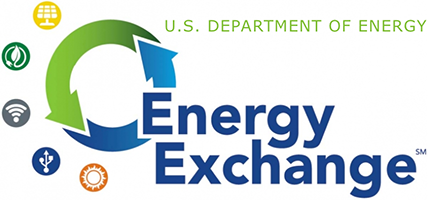Pittsburgh, PA

This session will explore the different net-zero emissions water design elements that can be employed to help federal facilities reduce carbon emissions. Discussion will include various methods to reduce emissions within water design elements and the different costs and benefits of each of those elements. In addition, panelists will present technologies for federal facilities that meet net-zero emissions water and wastewater goals and discuss site considerations for employing alternative water sources to help meet decarbonization goals.
Instructors
Thomas Pickrell, Senior Design Engineer, Southland Industries Read Bio
Thomas Pickrell has 23 years of experience in the mechanical design and construction business, with most of his career spent as a Senior Plumbing Engineer at Southland Industries. His extensive expertise extends across consulting engineering and design-build contracting, encompassing diverse market sectors and system types. Mr. Pickrell has played a pivotal role in the design of applications for a wide range of projects, including hotels/casinos, healthcare facilities, commercial spaces, data centers, educational institutions, stadiums, and residential buildings. Noteworthy is his adeptness at incorporating technologies to enhance energy efficiency, material utilization, and water conservation in each project. His commitment to sustainability is evident through the integration of innovative solutions such as thermal ice storage, rainwater/condensate capture, siphonic drainage, low flow fixtures, and solar thermal storage for domestic water heating.
Andrea Mott, Mechanical Engineer, Pacific Northwest National Laboratory Read Bio
Andrea Mott is a mechanical engineer at Pacific Northwest National Laboratory (PNNL) in the Building & Connected Systems Group. She specializes in decarbonization, building energy efficiency, and GHG-accounting projects for various federal sponsors including the Army Reserve, Army Materiel Command, and FEMP. She originally joined PNNL at their Joint Global Change Research Institute, where she worked on the development of the Community Emissions Data System that tracks historical anthropogenic emissions by sector, fuel, and country. She received her MS in renewable and clean energy engineering with a sustainability certificate, along with a BS in mechanical engineering with an energy systems concentration from the University of Dayton in Ohio. She is currently located in Seattle, Washington.
Gary Kolp, Director, Federal Policy, American Water Military Services Group Read Bio
Gary is the Director of Federal Policy for American Water's Military Services Group. He is a registered Professional Engineer. He earned a BS in Electrical Engineering from the University of Cincinnati, and an MBA from the Johnson School at Cornell. For over 15 years, Gary has managed the teams for all utility privatization proposals for American Water's Military Services Group. Previously, he was employed by Exxon Research and Engineering Co., and Air Products and Chemicals, Inc. While working for Exxon, he was a Senior Project Engineer/Project Manager specializing in process control instrumentation. At Air Products, he performed successive roles as Technical Systems Business Manager for Liquid Hydrogen, International Business Manager for Liquefied Natural Gas, and International Project Manager in their Electronics Group.
Learning Objectives
Upon completion of this course, attendees will be able to:
- Identify how to plan holistically for net-zero emissions water and wastewater design elements that can be employed to help federal facilities reduce carbon emissions and to support decarbonization goals;
- Identify tools available to plan for and implement water decarbonization projects;
- Recognize the challenges and best practices learned from planning and implementing water projects to address efficiency, decarbonization, and sustainability;
- Recognize campus wide strategies and some of the successful projects and technologies implemented that employed water strategies that reduce carbon emissions.









